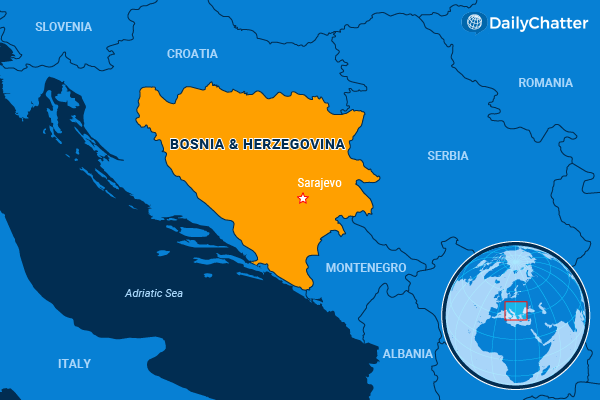The World Briefly
July 13, 2022The Lingering Scabs
Bosnia and Herzegovina

|
Listen to Today's Edition
|
Tens of thousands of people commemorated the anniversary of the 1995 Srebrenica massacre this week, the largest gathering to date, the Associated Press reported.
Leaders, diplomats and other foreign dignitaries marked July 11 as the 27th anniversary of the massacre, considered Europe’s only acknowledged genocide since the Holocaust.
The remains of 50 newly-identified victims were also laid to rest during the anniversary, joining more than 6,600 people already reburied at a memorial cemetery at the entrance to Srebrenica.
The Srebrenica killings were the horrific climax of the Bosnian conflict, which began after Yugoslavia’s disintegration unleashed nationalistic sentiments and territorial aspirations that pitted Bosnian Serbs against the country’s two other major ethnic factions, Croats and Bosniaks.
In July 1995, Bosnian Serbs overran the United Nations-protected safe haven, separating more than 8,000 Bosniak men and boys from their mothers, sisters and wives. The Bosnian Serb forces then chased the victims through the woods near the town and eventually killed them.
The perpetrators buried the victims in mass graves, which were later dug up with bulldozers to scatter the remains among various burial sites to conceal the evidence of their war crimes – causing half-decomposed cadavers to be ripped apart in the process.
Twenty-seven years later, body parts are continually being discovered in mass graves around Srebrenica and are being reassembled and identified using DNA analysis.
During Monday’s ceremony, Dutch Defense Minister Kajsa Ollongren apologized to the Srebrenica survivors for the Dutch peacekeepers’ failure to prevent the 1995 massacre.
Following the Bosnian war, a special UN war crimes tribunal and courts in the Balkans have sentenced nearly 50 Bosnian Serb wartime officials – including their wartime leader Radovan Karadzic and his military commander, Ratko Mladic – to more than 700 years in prison for the Srebrenica killings.
Despite the overwhelming evidence of genocide, many Serb leaders in Bosnia and neighboring Serbia continue to downplay the massacre – or even deny it – and celebrate Karadzic and Mladic as heroes.
Not already a subscriber?
If you would like to receive DailyChatter directly to your inbox each morning, subscribe below with a free two-week trial.
Support journalism that’s independent, non-partisan, and fair.
If you are a student or faculty with a valid school email, you can sign up for a FREE student subscription or faculty subscription.
Questions? Write to us at hello@dailychatter.com.

